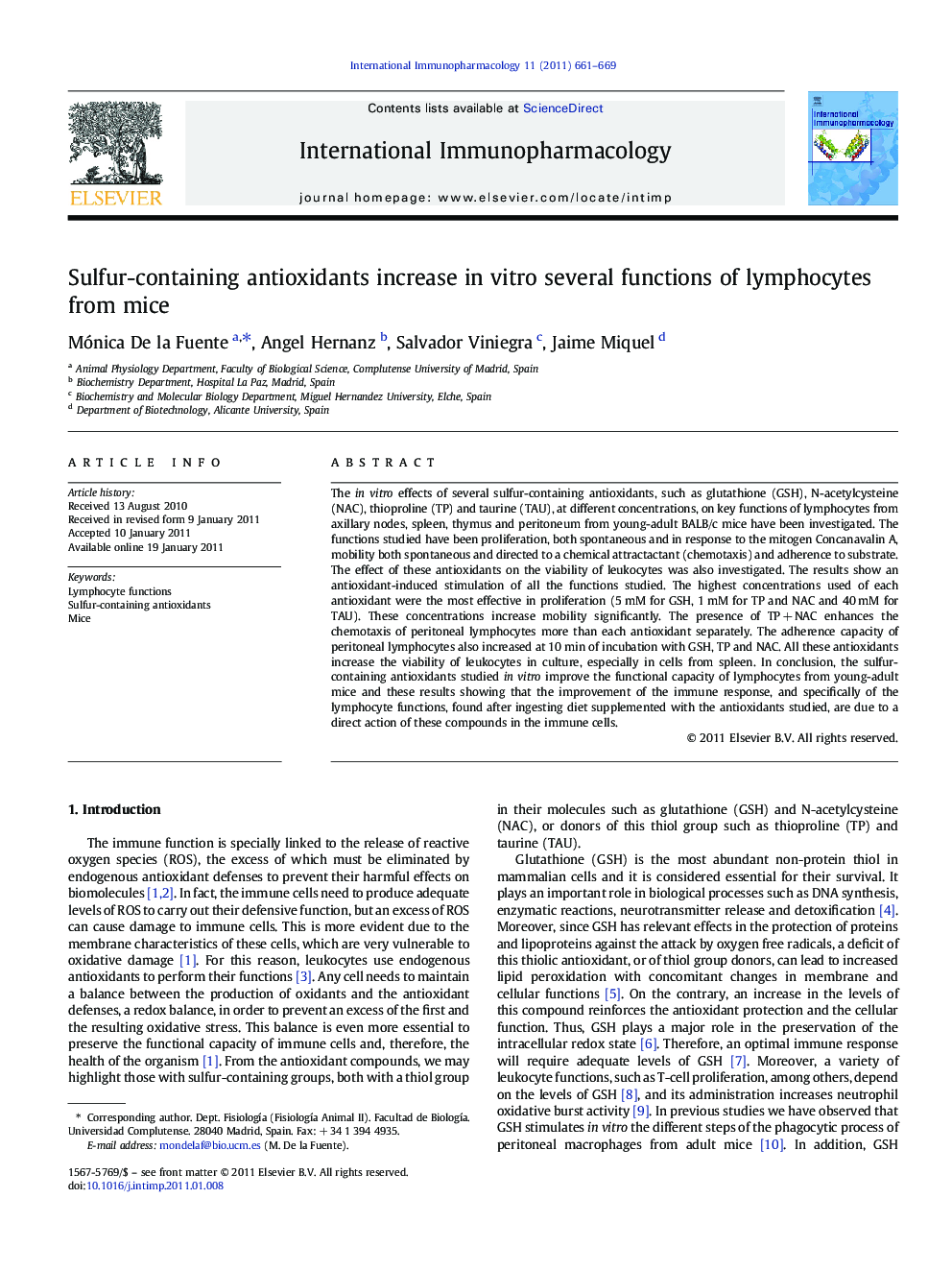| Article ID | Journal | Published Year | Pages | File Type |
|---|---|---|---|---|
| 2541730 | International Immunopharmacology | 2011 | 9 Pages |
The in vitro effects of several sulfur-containing antioxidants, such as glutathione (GSH), N-acetylcysteine (NAC), thioproline (TP) and taurine (TAU), at different concentrations, on key functions of lymphocytes from axillary nodes, spleen, thymus and peritoneum from young-adult BALB/c mice have been investigated. The functions studied have been proliferation, both spontaneous and in response to the mitogen Concanavalin A, mobility both spontaneous and directed to a chemical attractactant (chemotaxis) and adherence to substrate. The effect of these antioxidants on the viability of leukocytes was also investigated. The results show an antioxidant-induced stimulation of all the functions studied. The highest concentrations used of each antioxidant were the most effective in proliferation (5 mM for GSH, 1 mM for TP and NAC and 40 mM for TAU). These concentrations increase mobility significantly. The presence of TP + NAC enhances the chemotaxis of peritoneal lymphocytes more than each antioxidant separately. The adherence capacity of peritoneal lymphocytes also increased at 10 min of incubation with GSH, TP and NAC. All these antioxidants increase the viability of leukocytes in culture, especially in cells from spleen. In conclusion, the sulfur-containing antioxidants studied in vitro improve the functional capacity of lymphocytes from young-adult mice and these results showing that the improvement of the immune response, and specifically of the lymphocyte functions, found after ingesting diet supplemented with the antioxidants studied, are due to a direct action of these compounds in the immune cells.
